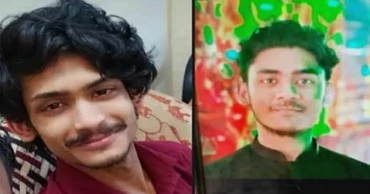Bangladeshi migrants
Bangladeshi immigration emerges as UK election issue after Labour leader’s comments spark outrage
Britain’s Labour party has been forced to issue a clarification on comments made by its leader Keir Starmer regarding the removal of Bangladeshi migrants from the UK, as reports emerged of outrage among members of the British-Bangladeshi community ahead of next week’s general election.
At a town hall with readers of The Sun, a rightwing tabloid, earlier this week, Starmer said: "At the moment people coming from countries like Bangladesh are not being removed because they’re not being processed."
He was being asked about Labour's rejection of the Conservative government policy of deporting migrants who arrive in the UK illegally in small boats to Rwanda. Starmer was trying to explain his policy would be to send illegal migrants back to their countries of origin.
"The number of people being returned to where they came from has dropped off by 44 percent under this government. So on the first few days of government, I’ll tell you what I do, I’ll put the staff back in the returns unit, I’ll make sure I’ve got planes going off, not to Rwanda because that’s an expensive gimmick," the Labour leader said.
Asked where the migrants would go, Starmer, who is being described as a ‘prime minister in waiting’, replied: "They will go back to the countries where people come from. That’s what used to happen." He then made the reference to Bangladeshi migrants.
Fourth UK Conservative Party official reportedly investigated in widening election betting scandal
A clip of the interaction described by news website PoliticsHome, that has reportedly been distributed on WhatsApp groups, shows Starmer talking of "people coming from countries like Bangladesh" but does not explicitly specify that he is referring to people without permission to settle in the UK.
At the end of the video, a message reads: "Don't vote for Labour on 4 July. Vote for Independent candidates."
Pro-Palestinian independent candidates are standing against Labour in a number of seats across England in the UK’s election, and regard voters disillusioned with Labour as their most likely supporters.
The Labour party in a statement said: "Keir has proudly supported the Bangladeshi community across the UK, who make an enormous contribution to our country. This clip has been edited to make it look as though Keir Starmer is suggesting repatriation of British Bangladeshis. It is misinformation.
"In fact, Keir is referring to Labour's long established policy of returning those who don't have the legal right to be in the UK to safe countries. Bangladesh was only used as an example, as there is already a bilateral agreement between the two countries."
The reference is to a new agreement signed between the two governments in May "to speed up the removal of migrants with no right to be in the country" by removing a mandatory interview in cases "where there is good supporting evidence for removal".
The UK and Bangladesh held their first ever Joint Working Group meeting on Home Affairs at the British Home Office in London and signed the Standard Operating Procedures (SOPs) on Returns, UNB reported at the time.
Nevertheless, the traditional support for Labour within the Bangladeshi community in the UK was set to be tested, as another candidate for the party in next week’s elections, Jon Ashworth, a member of Starmer’s shadow cabinet in the last parliament, also told the BBC this week that a Labour government would send migrants “from countries like Bangladesh or wherever” back to their countries of origin.
What happened this week in the UK election campaign, from a betting controversy to Farage's ambition
The reaction within Starmer’s own party has been stark. Labour has seven candidates of Bangladeshi origin standing in the election on July 4. Four of them were incumbent MPs till parliament was dissolved ahead of the election.
Rushanara Ali - the first British-Bangladeshi MP in the House of Commons and Shadow Minister - said in a message circulated online: "There has been considerable concern and upset following the release of a clip of the Labour Party leader. I have been in close contact with his team to relay the concerns in our community".
Apsana Begum, the Labour candidate standing for re-election in Poplar and Limehouse, tweeted a video of herself – in English and in Sylheti – criticising politicians using "dog-whistle racism against Bangladeshis".
Stepney Green Councillor Sabina Akhtar, deputy leader of Labour’s Tower Hamlets unit, handed in her resignation. "I was a proud Labour party member, but I find I cannot be proud of this party anymore when the leader singles out my community and insults my Bangladeshi identity," she said in a statement.
Paula Barker, who is re-standing to be the Labour MP for Liverpool Wavertree, tweeted: "Bangladeshis do not come here illegally. Their contribution to our national life and our community here in Liverpool is immeasurable. I will always stand with them now and always".
Starmer and Ashworth’s comments have been described as racist dog whistles that have left members of the British-Bangladeshi community “seething with anger”.
In the 2021 census, there were a total of 652,535 Bangladeshis in the United Kingdom, around 1% of the total population. Nearly half of the population live in London, and the community is regarded as the driving force behind Britain’s $5 billion curry industry.
Immigration is a hot-button issue in this year’s election in the UK, with the status of asylum seekers a particular concern for some voters. British government statistics show that the top countries of origin of people seeking asylum in the UK are Afghanistan, Iran and India, with Bangladesh ranking seventh.
Labour currently enjoys a big lead in the polls, and is expected to win the election ending 14 years of Conservative rule. But both parties are trying to avoid leaking votes to the newly-formed Reform party, that has set out its stall almost entirely around a pledge to drastically reduce net migration into the UK.
1 year ago
Bangladeshi siblings drown in Sea of Oman
Two Bangladeshi migrants drowned in the Sea of Oman while taking a bath in Al Shifa beach area in Muscat early Monday (September 04, 2023).
The deceased were identified as Abbas, 25, and his brother Azad, 20, sons of late Ahmed Hossain, of Chandgaon Para, Ward No. 4 under Nazirhat Municipality of Fatikchari upazila.
Read: 3 construction workers die from electrocution in B'baria
According to the locals, the two brothers had been living in the Hamriyah area of Oman for a long time. Recently their father died and they along with other family memebrs came to the country.
Later, Abbas and Azad went back to Oman leaving behind their mother.
Quoting family members, Md Shahjahan, councilor of Nazirhat Municipality, said on Monday around 3am (local time), the two brothers went to Al-Sifah Beach in Muscat. While bathing, Abbas and Azad were washed away by a strong wave and went missing.
Other friends searched for them but failed to trace them during the night.
Read: Son dies from electrocution in Jashore; father injured
Later, Oman Royal Police recovered the bodies of the two brothers on Monday morning.
Now, their bodies were kept in the morgue of Qurum Royal Police Hospital in Muscat, Councilor Shahjahan added.
2 years ago
Bangladesh top source country for migrants reaching EU via risky Meditarranean route
Bangladesh now tops the list of source countries whose nationals have tried to cross into Europe through the dangerous voyage across the Mediterranean Sea.
The number of Bangladeshis reaching Europe through the illegal route was 3,332 till July 26 of this year, which is the highest among the 47,425 refugees and migrants reaching Italy, Greece, Spain, Cyprus and Malta, mostly through sea routes in the same period. It means roughly 1 in every 7 of these individuals washing up on Europe's shores if they are lucky is a Bangladeshi.
Many of them have become victims of either trafficking or smuggling into several countries – in Libya, Tunisia, Malta, Bosnia and Herzegovina even amid the Covid-19 pandemic. Untold numbers have perished of course.
UNHCR, the UN refugee agency, recorded 937 deaths in just the first six months of this year in the Mediterranean sea, many of them Bangladeshis.
Although European authorities have always sounded out the fact that Bangladeshis have figured heavily among these movements off the coast of Africa - as recently as April, UNB reported Bangladesh was 4th on the list for 2021 arrivals via the Mediterranean -it has not always been clear why this is so.
Looking at the list of top 10 source countries, Bangladesh is clearly the odd one out. Rounding out the top 5 are three African nations (Tunisia, Ivory Coast and Egypt) and war-torn Syria. Geographically, Bangladesh is the farthest from the departure point.
There is no war to speak of, and even in terms of economic performance, Bangladesh's record is more robust than the other countries. That should act as a disincentive to not just migration, but particularly such risky-laden, desperate ventures.
Read: 49 Bangladeshi migrants rescued from Mediterranean
And that all points to what must be a huge number of Bangladeshis falling prey to human trafficking networks, that operate precisely on the Meditarranean route. In recent times, arrests of human traffickers in various districts of the country have revealed perilous journeys, sometimes years, that the victims are made to endure to get them to the Libyan coast, before they're cast off.
At least 60,000 Bangladeshis have entered Europe irregularly since 2009, according to the European Border and Coast Guard Agency, also known as Frontex.
Also, Covid-19-induced worsening poverty situation can be linked with people's desperation to take risky journeys, crossing the Mediterranean Sea and land routes to reach Europe.
Most of those who are crossing into Europe in this way are aged 25-40 and using at least 18 routes.
However, the central Mediterranean route has emerged as the key transit point for Bangladeshis seeking irregular migration to Europe, according to Frontex.
Meanwhile, Covid-19 has increased the risk of trafficking not only for potential migrants who are looking for better opportunities in Europe. Recent trends also suggest that traffickers are using social media platforms to lure potential victims of human trafficking.
The grim scenario came up at the webinar "Human trafficking and irregular migration: Situation analysis, challenges and ways forward."
Brac Migration Programme organised the event Thursday ahead of World Day Against Trafficking in Persons which falls tomorrow.
"It is a disturbing development that Bangladesh nationals sit atop the list of countries from where most people tried to enter Europe through sea route. War-torn and impoverished countries like Syria, Eritrea, Sudan, and Afghanistan are on the list. So, the desperation of Bangladesh nationals cannot be justified along the same line," said Shariful Hasan, head of Brac Migration Programme.
Around 4,510 irregular Bangladeshi nationals entered Italy, Malta, Spain or Greece in 2020 through sea and by land, according to the International Organization for Migration Displacement Tracking Matrix.
At least 17 Bangladeshi migrants drowned in a shipwreck off Tunisia as they tried to cross the Mediterranean to reach Europe, the Tunisian Red Crescent said in July.
On July 8, the Tunisia navy rescued 49 undocumented Bangladeshi migrants from the Mediterranean.
On July 3, at least 43 migrants, including Bangladeshis, went missing while 84 were rescued after a boat heading towards Europe drowned off the coast of Tunisia.
Several migrant boats sank recently while trying to reach Europe as more people are now trying to make the dangerous voyage across the Mediterranean to the continent amid warmer summer weather.
Between May 18 and June 24 this year, Tunisian naval authorities rescued over 700 Bangladeshis, shipwrecked in the Mediterranean on their way to Europe from Libya.
They were part of at least 3,332 Bangladeshis who have so far been either rescued or detained on their way to the continent this year.
4 years ago
49 Bangladeshi migrants rescued from Mediterranean
Tunisia navy has rescued 49 undocumented Bangladeshi migrants from the Mediterranean Sea.
The Bangladesh nationals boarded the oil platform "Didon" Thursday after their boat broke down 80km off the coastal town of Zarzis, close to the Libyan border, according to Tunis Afrique Presse.
The migrants, aged between 16 and 50, were heading towards Europe and had set sail from the Libyan coast on July 5, the Tunisian defence ministry said.
Also read: Bangladeshi migrants among 43 missing as boat sinks off Tunisia
"The Bangladesh nationals were transferred to the El Ktef seaport in Ben Guerdane city where they will be handed over to National Guard," it added.
Several migrant boats sank recently while trying to reach Europe as more people are now trying to make the dangerous voyage across the Mediterranean Sea to the continent amid warmer summer weather.
Also read: 20 migrants dead off Tunisia after boat sinks, more missing
Between June 26 and July 3, Tunisian naval authorities fished out 49 bodies of migrants and saved 78 after four boats sank off the coast of Sfax city.
On July 3, at least 43 migrants, including Bangladeshis, went missing while 84 were rescued after a boat heading towards Europe drowned off the coast of Tunisia.
4 years ago
Bangladeshi migrants among 43 missing as boat sinks off Tunisia
At least 43 migrants, including Bangladeshis, are missing while 84 were rescued after a boat heading towards Europe sank off the coast of Tunisia on Saturday, the Tunisian Red Crescent said.
Mongi Slim, head of the organisation, told The Associated Press that the boat, which was carrying 127 migrants, left Libya's coastal city of Zuwara on Friday to cross the Mediterranean Sea towards Italy.
He said 46 Sudanese, 16 Eritreans and 12 Bangladeshis were among the migrants.
Also read: Speedboat sinks in Padma, 26 dead
The defence ministry's spokesperson, Mohamed Zekri, said the 84 migrants were rescued by fishermen. He declined to confirm the drowning of the other migrants.
Libya is a frequent departure point for migrants making the dangerous Mediterranean Sea crossing. Several shipwrecks from smugglers' boats carrying migrants have occurred in recent weeks, as attempts to reach Europe become more frequent amid warmer summer weather.
Last week, Tunisian coast guards found seven bodies on the beaches of Djerba, an island off the southern coast. They were buried at the cemetery for migrants in Zarzis, Tunisia, who perished in the Mediterranean Sea.
Also read: 20 migrants dead off Tunisia after boat sinks, more missing
The head of the Red Crescent, meanwhile, launched an urgent call about the fate of hundreds of migrants who escaped death as his organisation has no means to provide housing.
"The three centres in Zarzis are full and cannot shelter more people. We also have 380 other migrants in confinement in Djerba with nowhere to go," Slim said.
4 years ago
77% Bangladeshi returnee migrants struggling to find jobs: Study
Around 77% of the returnee migrants in Bangladesh were struggling to find jobs between April and November last year because of Covid-19 pandemic, says a study.
Among the migrant households with returnees, 61% had at least one member who lost a job or earning opportunity during the pandemic.
More than three-fourth (77%) of the marriages that took place in households during surveyed period had brides who were under the age of 18, which is 26% higher than the national rate of child marriage (51%) in 2018.
Child marriages were found to be more prevalent in rural areas (81%) than in urban locations (70%).
Read Bahrain urged to take back Bangladeshi expats
These are the outcomes of a research jointly conducted by BRAC, UN WOMEN Bangladesh and the Center on International Cooperation at New York University.
The research looks into the changes in demographic, economic, and social environments in secondary towns, peri-urban (upazila), and rural areas brought on by the reverse migrations during the Covid-19 pandemic.
The findings of the research titled “Demographic and socio-economic changes induced by the Covid-19 pandemic: Challenges of new circumstances” was unveiled at a virtual policy dialogue on Saturday.
A panel of distinguished experts, academics, policymakers, and development professionals shared their valuable insights at the dialogue.
Also read: 70pc Bangladeshi returnee migrants struggling to find jobs: IOM
They also discussed the policy priority areas identified by the study findings and way forward.
Dr. Shamsul Alam, Member (Senior Secretary), General Economics Division, Planning Commission, attended the dialogue as the chief guest.
Representatives from the Ministry of Expatriate Welfare and Overseas Employment, the Ministry of Women and Children Affairs, South Asian Network on Economic Modelling (SANEM), Dhaka University, the Center on International Cooperation at New York University, UN Women Bangladesh Office, UNDP Bangladesh, and BRAC joined as discussants.
A survey was conducted with 6,370 households during 10-25 December 2020 as part of the study that applied both quantitative and qualitative techniques.
Read Also: IOM supports Bangladesh's efforts at entry points to fight COVID-19
The survey considered April-November 2020 as a reference period.
The study calls attention specifically to the impact of the Covid-19 on internal and international migration, including returnee migrants who were forced to return to their places of origin due to various circumstances during the pandemic.
One-fourth (25%) of returnee migrant households are concerned over repaying their outstanding migration loans, which amount to an average of BDT 76,000 (around USD 900), and a maximum of BDT 700,000 (around USD 8300), the study found.
Around 44% reported that they could not find any income-generating work and some of them are managing expenses by withdrawing from savings or using rent from assets.
Read Govt to expats: Don't come during lockdown, except for emergencies
4 years ago
160 Bangladeshi migrants return from Libya with IOM support
International Organization for Migration (IOM) facilitated the safe return of 160 Bangladeshi migrants stranded in Libya under its Voluntary Humanitarian Return (VHR) programme on Wednesday.
The flight carrying the returnees left Benghazi, Libya on Tuesday and landed at Dhaka’s Hazarat Shajalal International Airport (HSIA) on Wednesday.
Also Read: 28,849 Bangladeshi expats to return home: FM
The returnees including 159 men and one woman were stranded in Libya due to the COVID-19 pandemic and protracted political instability.
IOM assisted with the safe return of these migrants in coordination with the Embassy of Bangladesh in Libya.
The body of one Bangladeshi national who died in Libya was also repatriated on this flight.
Prior to departure, the returnees underwent health checks, were offered pre-departure transportation assistance, counselling services and screened for underlying protection vulnerabilities by IOM.
Given the current COVID- 19 situation, all returnees were also provided with personal protective equipment (PPE) and took a COVID-test (PCR) prior to departure.
In Dhaka, government officials and IOM Bangladesh staff received and supported the migrants at the Hazrat Shahjalal International Airport.
Also Read: Returnee migrants: Almost half still unemployed, 28% in debt
At the airport, the returnees each received cash for transportation from IOM to help them get home.
Besides,, the returnees will each receive a reintegration grant from IOM.
Reintegration support is particularly important for migrants who, in some cases, have experienced physical and psychological trauma while stranded in Libya.
One of the returnees said, “Life in Libya was very dangerous as hostilities continued there. I decided to return to my country as I could not earn enough money. It was very difficult to stay over there. I am grateful to IOM and the Government of Bangladesh for arranging my flight home. I am very happy that I will see my family after years.”
Giorgi Gigauri, IOM Bangladesh’s Chief of Mission said stranded Bangladeshi migrants find themselves in precarious conditions in Libya, and COVID-19 has exacerbated their vulnerabilities.
"It is our number one priority to provide these returnees with a safe and dignified way to get home, and to support reintegration into their communities. To do this, we continue to work closely and constructively with the Government of Bangladesh, and I thank them for their ongoing efforts.”
IOM’s Voluntary Humanitarian Return Programme can be life-saving for migrants stranded or in detention, especially in conflict-ridden countries. Since 2015, a total of 2,942 Bangladeshi migrants have returned from Libya through the Programme, which is a part of the larger EU-IOM Joint Initiative for Migrant Protection and Reintegration.
The programme facilitates orderly, safe, regular and responsible migration management through the development of rights-based and development-focused policies and processes on protection and sustainable reintegration.
The necessity of the VHR programme was magnified in 2020, when 30 migrants—including 26 Bangladeshis—were shot and killed in a smuggling warehouse in the Libyan town of Mizdah.
The flight was made possible with support from the EU Trust Fund for Africa (EUTF) through the EU-IOM Joint Initiative, supported by the European Union.
4 years ago
Rohingya repatriation: Dhaka seeks proactive, meaningful role from int'l community
State Minister for Foreign Affairs M Shahriar Alam on Thursday sought "proactive and meaningful" role of the international community for a sustainable solution to the prolonged Rohingya crisis through their repatriation to Myanmar.
5 years ago
Ensure 2pc loan interest rate for migrants: RMMRU
Refugee and Migratory Movements Research Unit (RMMRU) on Tuesday urged the government to set a 2 percent loan interest rate for migrants affected by COVID-19 pandemic.
5 years ago
Portuguese President lauds migrant Bangladeshis
President of Portugal Marcelo Rebelo de Sousa has praised the migrant Bangladeshis living in Portugal for their diligence and sincerity in work.
5 years ago



.jpg)





.jpg)




